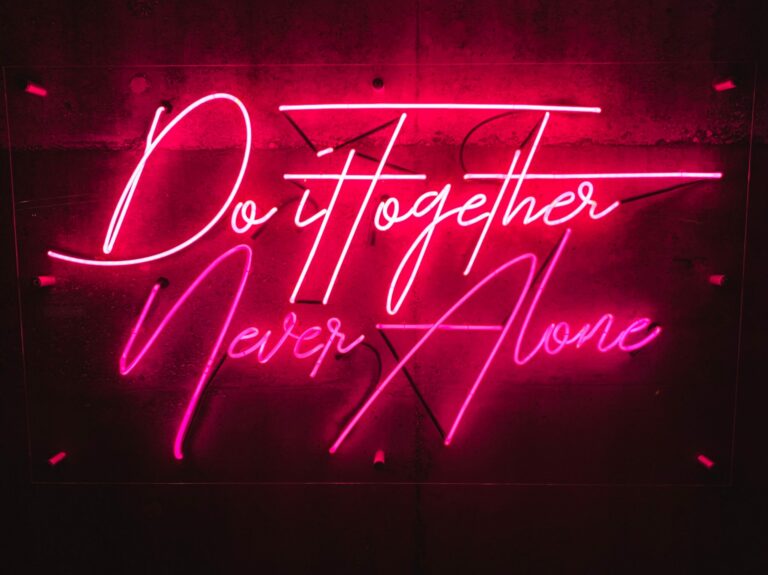The Worst Is Yet to Come, and Babe, It Won’t Be Fine
Will every title be a reference to a song? Maybe! But at least they’re not all gonna be 90s references. Here’s today’s song, if you’re floundering. It’s a lot more hopeful than most of the rest of this post.
So last week, we talked about fatigue and burnout, and I promised you I would give you some reasons to keep engaging with the things that matter. I didn’t promise a cheery chat — and the title today reinforces that! — but I am going to provide some reasons to hope even as I try to spook you into action.
Naomi Klein’s concept of disaster capitalism, as she outlines in the Shock Doctrine, is one that resonates. We’ve talked about it in these pages before: it’s the idea that bad, exploitative policy — of the neoliberal variety — typically follows on from crisis. Klein herself has acknowledged the parallels to this moment. And I’ve argued that we’re seeing this same thing happen in educational technologies, as universities floundered to sign agreements and then get stuck with tools they are ill-prepared to effectively manage and use.
So we’ve been there, in the Detox. You should beware the product that knocks on your door when you are at your lowest point and promises to shrink your workload and transform your classroom. But what about the impact of shock doctrine on governance? Like, when you’re too tired to focus in that committee, what slips by you? And what if you multiply is by all the checked out people in the room? Collegial or shared governance is important, and when things are working it’s arguably one of the better parts of academic employment. Last week, I linked you to an AAUP report on the failure of shared governance during the pandemic, and it’s a staggering read; the report outlines what they call “dramatic board and administrative action regarding governance since the pandemic began.” This includes program closures, firings, administrative appointments without process, closing the faculty union, and more.
Shared academic governance has been under severe pressure since the onset of the pandemic. Though it would be premature to say that we have entered a new era of institutional governance in advance of what some observers are calling “the great contraction” in American higher education, the evidence already before us suggests that this has been a watershed moment. There is no question that many colleges and universities are in financial distress, and many more will face daunting challenges in the next decade. The question is whether robust shared governance will survive those challenges. For that to happen, governing boards, administrations, and faculties must make a conscious, concerted, and sustained effort to ensure that all parties are conversant with, and cultivate respect for, the norms of shared governance as articulated in the Statement on Government of Colleges and Universities.
– from COVID-19 and Academic Governance
One of the things the report highlights is the problem of ad-hoc governance — committees created, ostensibly, to deal with the immediate crisis of the pandemic, but which undermine existing processes or stretch their influence farther than is reasonable. I think we’re about to see this set of truths run headlong into the Great Disengagement, where even as processes begin to normalize — changed or not! — they’ll be met by faculty who are checking out and stepping away from the demands of governance.
The other truth is that governance in higher ed wasn’t all that great to begin with. Indeed, this isn’t the first time people have feared for its decline, and that doesn’t mean a decline hasn’t been in process for some time. As the insolvency of Laurentian University has shown, Boards are not always effective at oversight; in Canada, this can at least partially be explained by the fact that most Board appointments are awards handed out by provincial governments, not careful attempts to ensure a balance of skills and capacities. And the university community’s ability to interface with and influence the actions of the Board are variable at best. Goodness knows we’re having our own issues with shared values where I am.
I worry about governance without faculty oversight, and I speak advisedly about faculty here, because it is part of the role that is entrusted in us by our relative security, the non-precarious among us, to speak truths to power. Indeed, one of the (intended) impacts of the increasing precarity of our profession is that there are fewer and fewer people to do the truth-telling, and those who remain are inundated with work. But these are choices we can fight, if we have fight in us; instead, I worry those who can speak are losing the will to do so.
A recent survey by Nature shows that 35% of faculty report being angry with their working situation, up from 12% pre-pandemic, and more than half are thinking about a career change. The contexts of the last two years have been more burdensome still on academic staff. I have certainly noticed a resignedness among my colleagues sector-wide; people feel ignored and used up, and the idea of investing for better when better doesn’t feel possible seems pointless. I get it. The truth is, no one person can do it all to fix higher education. If you’ve got to let go, you’ve got to let go: the one thing I have learned is that the institution doesn’t care a jot, and our own personal boundaries are important. But if you are in the privileged position of secure academic employment and the freedom to speak, don’t let it go too readily. Let me share with you a story of a where change was made.
If you click the below link, you can learn about how Karen McMurray at Coast Mountain College successfully got surveillance software banned at her institution:
What is remarkable and hopeful about Karen’s story is that she documents the disappointments that came along the way — the first, student-led foray was unsuccessful, but she persevered on behalf of what mattered to her students. She found allies within her institution, even when she feared she might be on her own. And she held fast to what she wanted and didn’t allow for the watering down or softening of the central claim. And it worked. Because she argued her case in a space of shared governance and she was successful. Masterful.
Read the whole thread. I tear up every time.
Karen’s story reminds me of the good parts of collegial governance: it offers a place where, driven by the concerns of members of our community, we can come together to listen to one another and achieve positive change.
But look at all the work it required in order to make it happen.
And Karen didn’t do it alone. She needed her community. It wasn’t enough for Karen to care, and to push, and to argue — other people had to do it, too. Together. Collective refusal is radical refusal. And sometimes it can win the day.
The fact is that I do not have a perfect solution — I may not have any solution — to what we are faced with in higher education today. We are outgunned. Almost every university took the moment of the pandemic to slash budgets whether they needed to or not, and governments backed this in spite of its long-term cost to growth; in Canada at least almost all of them are running massive surpluses with variable significant plans for reinvestment.
And we’re in a moment where edtech is looking to make some big moves. They made a lot of money out of the pandemic, and now they want to spend it on going legit. So Course Hero has hired a VP Academics (this for sure seems like a company that needs an ethicist more than a provost), I guess, and we can expect to see these moves towards respectability. Reputation-washing means having a scholarly face (and a scholarly rolodex) at the helm or in some significant position of influence, but it doesn’t necessarily change what is happening under the surface. Our institutions are in a difficult place to make good decisions and, while shared governance is a critically important place for questions about ed tech ethics can be asked, we need to know the right people are at the table. And they need to not be so burned out that they cannot act.
I share Karen’s story because it fills me with hope and promise. I also, admittedly, share it because it’s rare. Another success I like to share is the story of investment in alternative assessment as a way to move away from surveillance technology at the University of Michigan – Dearborn. It’s good to hear about an institution seeking a pedagogical solution — better assessment! — to the problem of academic integrity in the pandemic. But the authors of that article note that even with the best intentions, keeping surveillance tools out of their institution was extremely due to fourth-party agreements they didn’t know about when they began the work. We’re surrounded by these companies and their profit motives, and the vigilance to keep them out requires human bandwidth.
So we have to stay on top of things. We just do. And because we can’t do it alone, we need to find our communities of resistance. Because we can’t all be on top of all the crises all the time. And the only way to sustain ourselves and to survive this moment is to work together.
The thing is, I do think the worst is yet to come. And I don’t think it’s going to be fine. But I also think that we can learn a lot from the moments when members of a post-secondary community have banded together to make positive change. We don’t hear those stories enough (if you have them, share in the comments!) but they are proof that we can stay engaged, stay committed, and change the game.
Ok. That was a little hope and a whole lot of despair. Next week, to keep the cheer train rolling, we’re going to do a deep dive on academic surveillance tools — and I’m not just talking about e-proctoring. I’m going to argue that learning analytics and the way we check logs in Moodle are also a kind of surveillance, and not a helpful one. And we’re going to talk about whose bodies are “merely” observed, and whose are policed, using these tools.
Remember, if you’re feeling the urge to join the chat here, the comments are open always. And if you have something longer to share, you can pen your own submission to the Detox here.







Great post. It makes me feel slightly less paranoid about the slow (and not-so-slow?) erosion of rights, specifically surrounding privacy. The pandemic certainly has brought out all sorts of groups that are not necessarily working for the greater good but for their specific interests. I was so hopeful that we could have taken this opportunity to make a significant shift in our social contract in this country, to collectively agree to take care of each other but I certainly see it trending the other way. Nature abhors a vacuum, I guess, so those who had the ability to take advantage of the multitude of crises certainly have been working their magic to fill the void with their POV. What’s even more worrisome is that those who are concerned about these power shifts are too damn tired to keep doing the heavy lifting. Collective shoulder shrugs.
Building support/consensus from others, as in the awesome example you shared, seems to be the only way to go.
I’m so grateful these conversations are happening and I’m quite in awe of your ability to create a cohesive narrative each week to share with us, Brenna. In response to your tweet regarding your tenure application, I wanted to say how much you shape and influence my thinking because of your wonderful way to express yourself so fluently & candidly in the open but I can’t even seem to stitch two sentences together these days. I’m trying here…trying…
I love Karen’s story and triumph; I watched it unfold on twitter with glee that good things can happen with some advocacy. It is encouraging to be reminded that we can resist what feels inevitable. Someone reminded me this is a tug of war not a win or lose scenario.
That said, can you share the link to your keynote that influenced her? Also, is Karen’s 5min mic drop presentation available somewhere? I often go back to the amazing google doc of articles, news items in “Against Online Proctoring” but perhaps a Resistance Tool-kit is in order?
I love the idea of a resistance toolkit — maybe that should be the shape of Week 5, which is currently loosely framed as “What Activism Looks Like.”
Thank you for the nudge re: my Cascadia keynote! The keynote is available here: https://admin.video.ubc.ca/html5/html5lib/v2.86.1/mwEmbedFrame.php/p/122/uiconf_id/23448488/entry_id/0_ozm8zx5e?wid=_122&iframeembed=true&entry_id=0_ozm8zx5e&flashvars%5BstreamerType%5D=auto
I am not sure about Karen’s talk.
(And of course, thank you for the kind words, which my brain will resist processing but for which I am grateful.)